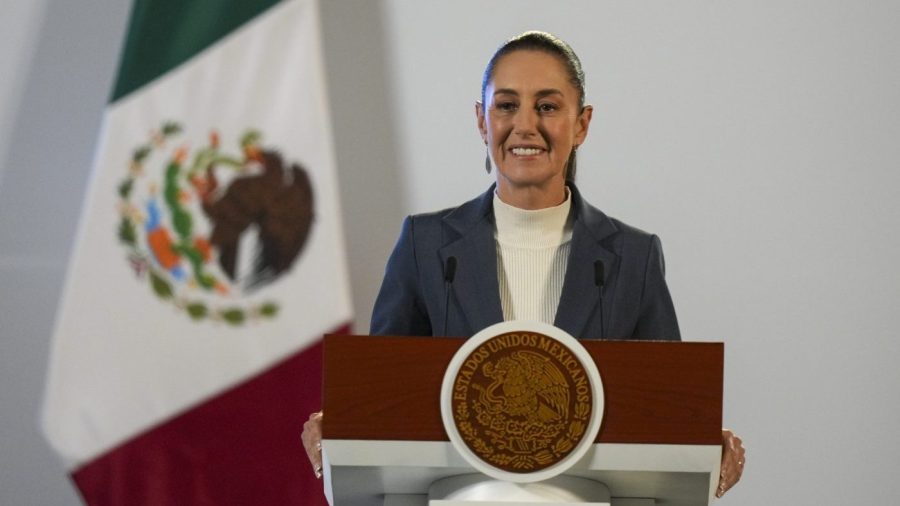Mexico’s foreign policy is headed toward greater radicalization. The clues have been clear. Newly inaugurated President Claudia Sheinbaum has restricted the diplomatic work of the U.S. ambassador, humiliated the King of Spain and appointed a new secretary of Foreign Affairs known for his disturbing positions on Russia, Iran and Cuba.
In 2022, Mexico opposed expelling Russia from the United Nations Human Rights Council after the invasion of Ukraine. “Mexico will abstain from supporting the draft resolution suspending Russia from its rights as a member of the Human Rights Council” said Ambassador Juan Ramon de la Fuente, who now is Mexico’s foreign minister. Vladimir Putin was also invited to Sheinbaum’s presidential inauguration. (He declined to attend.)
Mexico has turned a blind eye toward Iran. “We urge the United States to lift the unilateral sanctions against Iran, especially those that apply extraterritorially or to third states” said de la Fuente at the U.N. Security Council in 2022. Mexico also abstained from condemning Iran’s brutal repression against women during a vote to expel it from the U.N. Commission on the Status of Women.
Mexico’s alignment with the Cuban regime is serious and shameful. Mexico could be a relevant voice in defense of democracy, but it prefers to continue supporting a dictatorship that has been in power for 65 years and holds more than 1,100 political prisoners. It has dared to declare that the U.S. must end its embargo and “repair the damage over Cuba,” according to a statement made by de la Fuente in 2022.
An unfriendly foreign policy towards the U.S. in on the rise. President Sheinbaum delivered a diplomatic blow to the U.S. Ambassador in Mexico, Ken Salazar, saying that she will not communicate or meet with any governmental secretary without first consulting the Ministry of Foreign Affairs. This is how Mexico treats its main commercial partner and the recipient of 83 percent of its exports.
Sheinbaum has also snubbed President Biden. He announced plans for a meeting with her, but she surprisingly said no. “I don’t have plans to meet with him soon,” said Sheinbaum. She also noted that Mexico wants to be “very respectful” of the U.S. electoral process.
Sheinbaum published on X that she spoke by telephone with her U.S. counterpart, stating that they will continue to work on economic, cultural and trade matters. She omitted security and migration issues, even though these are fundamental areas for the U.S. The silence on these matters says a lot.
The capture of cartel kingpin Ismael “El Mayo” Zambada has created new tensions with the U.S. Sheinbaum insists on reproaching its neighbors for the capture of the Sinaloa leader, an operation in which Mexico says it wasn’t taken into account. Earlier this year, the head of the Drug Enforcement Administration, Anne Milgram, revealed that antidrug cooperation from Mexico has been uneven and insufficient.
Sheinbaum has made it clear that she will continue to be a head of state absent from international forums. She will not attend the COP29 Climate Change Summit in Azerbaijan, giving up her global leadership in the concert of nations.
Prepare for a six-year term with little light and much shadow. Sheinbaum’s foreign policy could become a trench of tyrants and human rights violators, a season of empty chairs and glances to the other side.
Mexico’s irrational defense of Russia, Iran, Cuba and even Venezuela should be seen as a serious problem. Acting like nothing is happening and calling the current government a partner is not only naive but dangerous.
The Morena party’s second term in power is showing more radicalization inside and outside the country. Mexico is on the path toward less democracy and greater autocracy, less diplomacy and greater ideological turbulence. Observers should be positive and expect the best — but always prepare for the worst.
Arturo McFields Yescas is a former Nicaraguan ambassador to the Organization of American States, an exiled journalist and a former member of the Norwegian Peace Corps.

